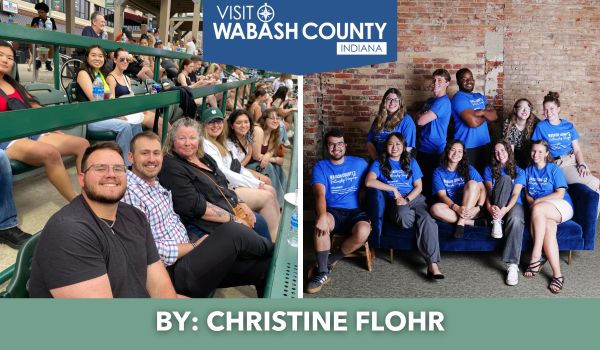Planting More Than Seeds
Bringing Nature Home was created to promote a healthy environment and support the ecosystems through the use of native plants and trees. The organization began with four members of the Wabash Presbyterian Church talking about the area’s natural habitat and what could be done to restore it. Mary Kramer, Sandy Mitting, Charlie Miller and Susie Jones asked other church members to bring perennials they were willing to share, especially native plants and pollinators, and these were planted in a small garden.

Concern for monarch butterflies prompted the next phase for the group. According to the book, The Monarch by Kylee Baumle, we have lost 90% of our monarchs in the last 20 years. This is due primarily to the loss of habitat, and the use of pesticides. Monarch butterflies lay their eggs only on milkweed, and when the caterpillar comes out of the egg the only thing it will eat is milkweed. Once the caterpillar forms the chrysalis and the butterfly emerges it will eat the nectar from many plants.

So milkweed is essential to the monarch’s life, but it has been eliminated as fence rows have been pulled out, and it is not resistant to pesticides. Buildings, parking lots, pavements, roads and driveways, and big, pristine lawns have all had a detrimental effect on milkweed and other native plants. So the friends expanded their membership and set up a booth at Founder’s Day and First Fridays in the fall of 2023 to help raise awareness about the butterfly and to hand out packets of milkweed seeds. One Hundred and sixty packets of seeds were given out and over sixty people signed up to get messages and support the efforts.
Membership began to grow. Beth Stein and Kelly Smith added their expertise. Wabash Mayor Long and the city parks department superintendent Adam Hall and assistant Sam Hipskind came on board. Wabash Middle School Science teacher Brody Cook joined our planning team, and Carol Horn brought her interest in native trees and the tree canopy to the organization.

The goal is to find areas in Wabash and Wabash County where there is space to plant, to bring native plants into the landscape plans of public buildings and spaces, and to encourage individuals to find a spot in their yard to add native plants, especially milkweed.
Douglas Tallamy, in his book, Nature’s Best Hope, says, “We are at a critical point of losing so many species from local ecosystems that their ability to produce oxygen, clean water, flood control, pollination, pest control, carbon storage, etc. that are the ecosystems’ services that sustain us, will become seriously compromised.” Just think of all those things the ecosystem does for us!

To help the monarchs, consider providing a Monarch Waystation. LEARN MORE. The monarchs fly from as far north as Canada to winter in Mexico. To supply them with nutrients along the way, plant milkweed, some nectar plants, and perhaps add a birdbath or other water source. Change a part of your lawn to a place for wildflowers or other native plants, shrubs, and trees.

Margaret Mead once said, “Never doubt that a small group of thoughtful, committed citizens can change the world. Indeed, it is the only thing that ever has.” One person cannot do everything, but each one of us can do something. Start planting! Even one plant will make a difference to some bee or butterfly!



